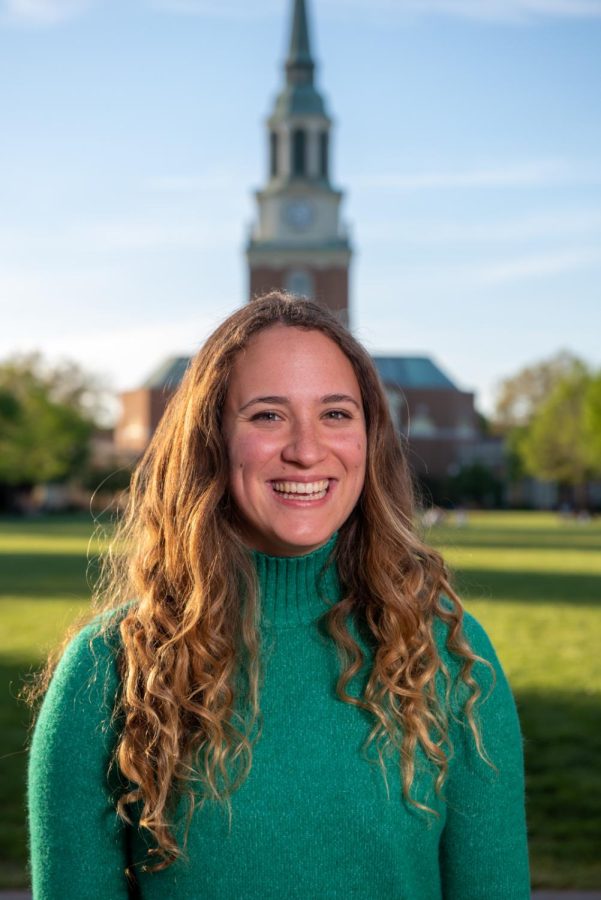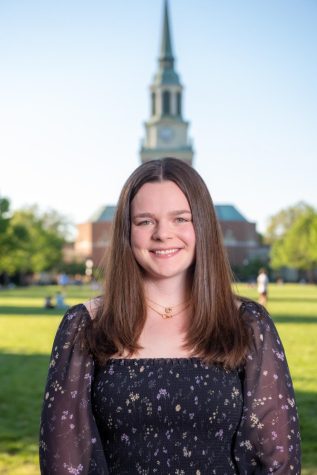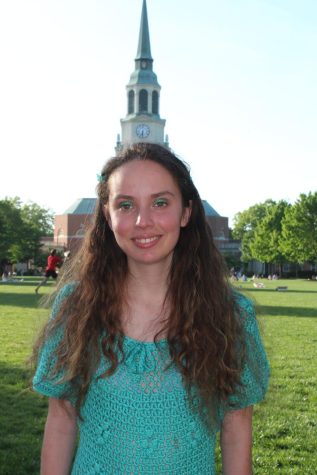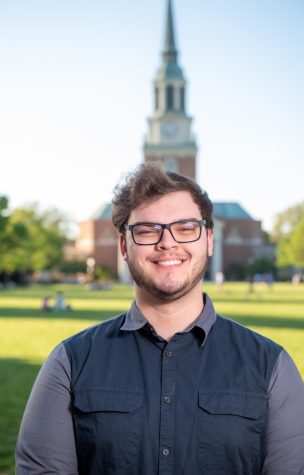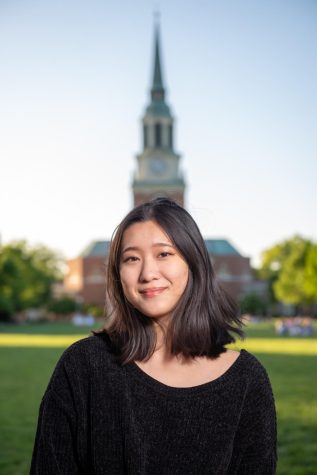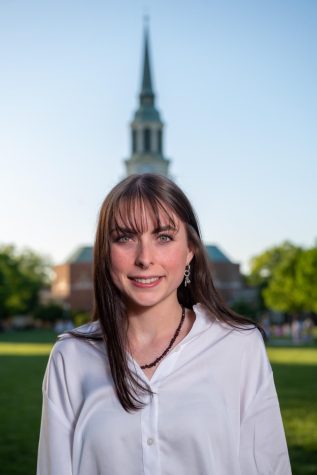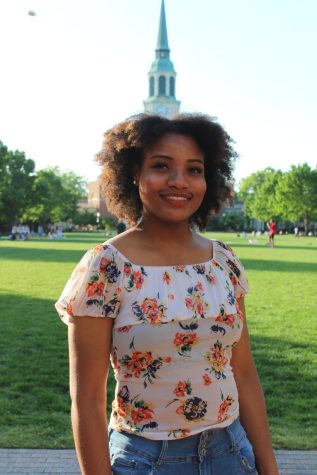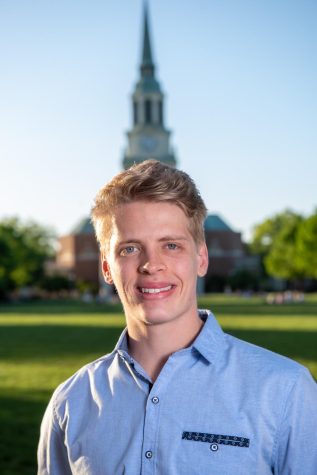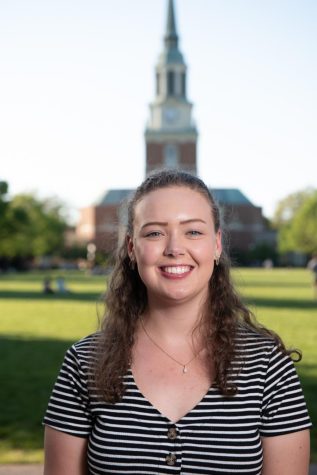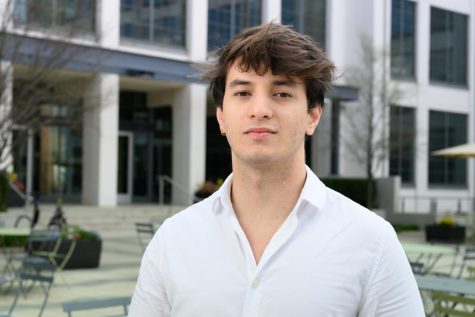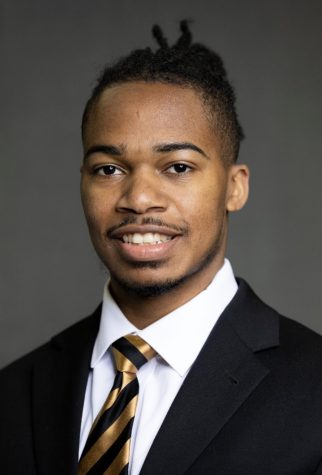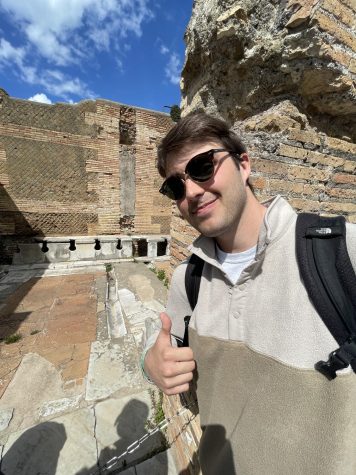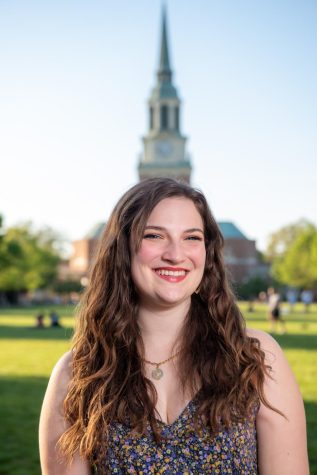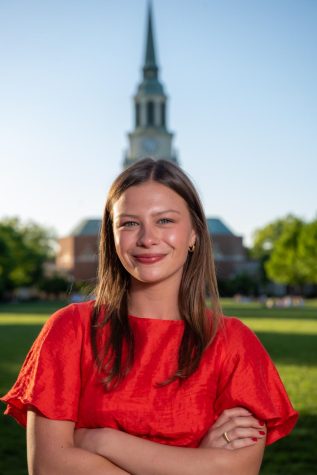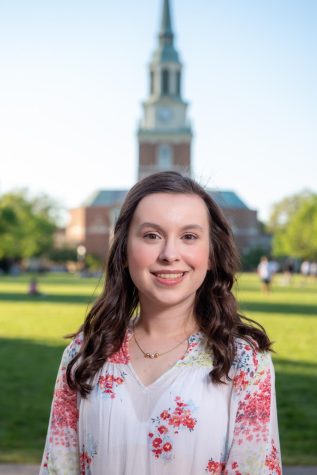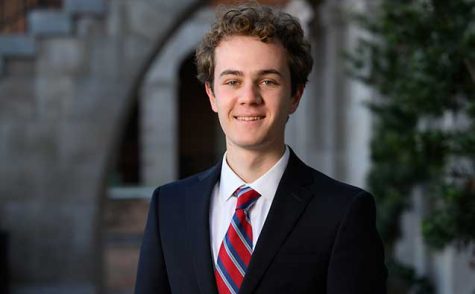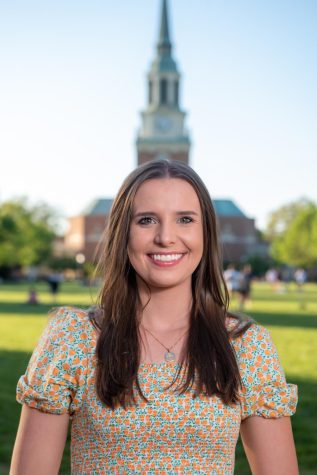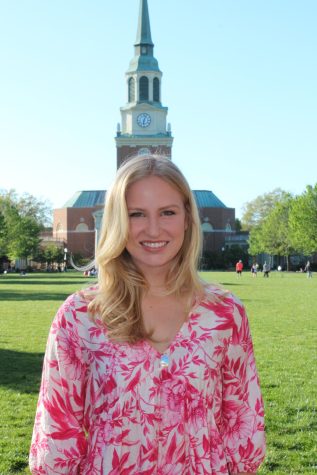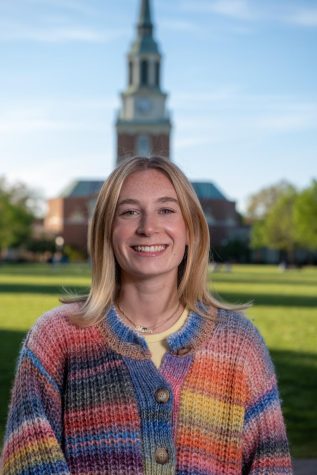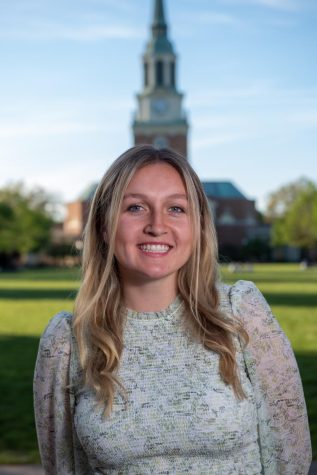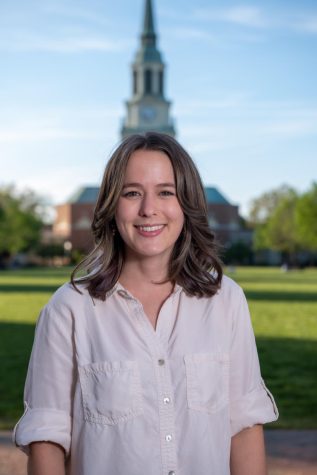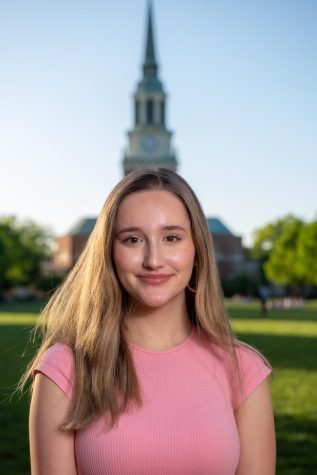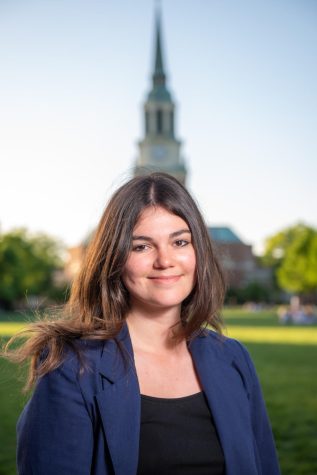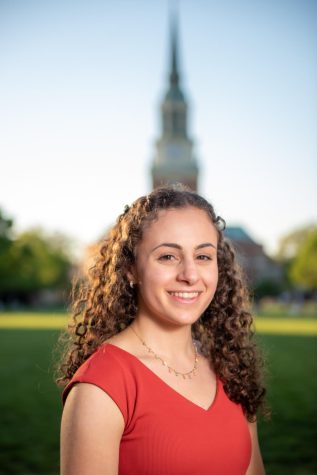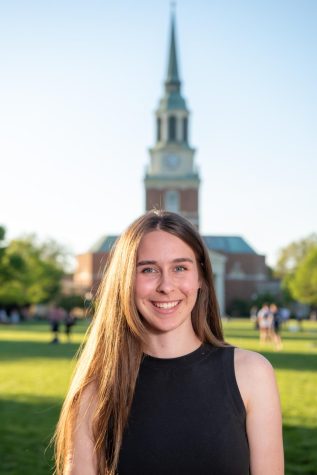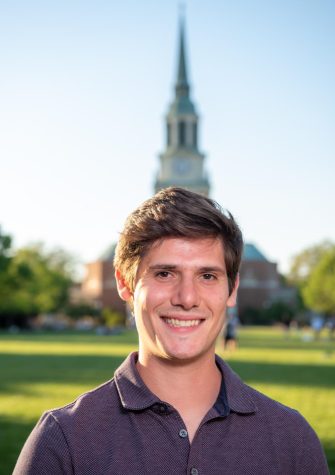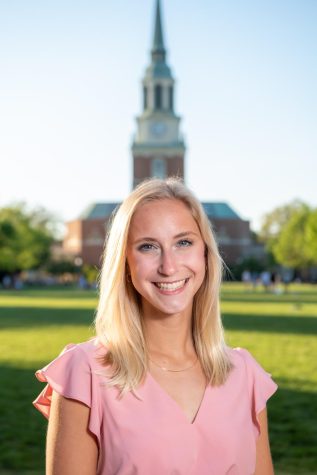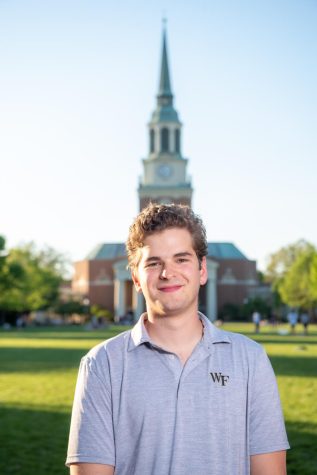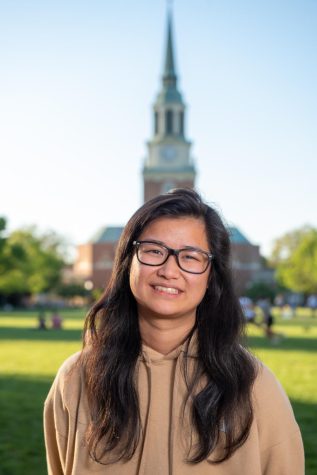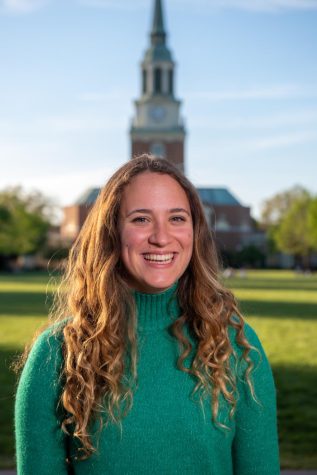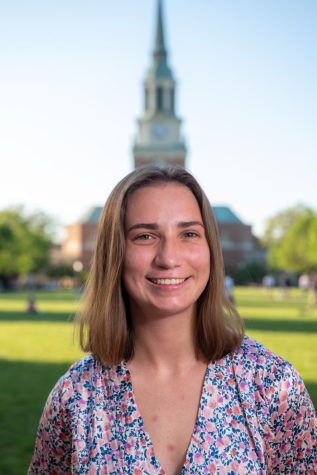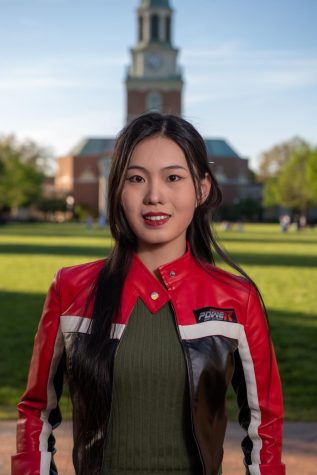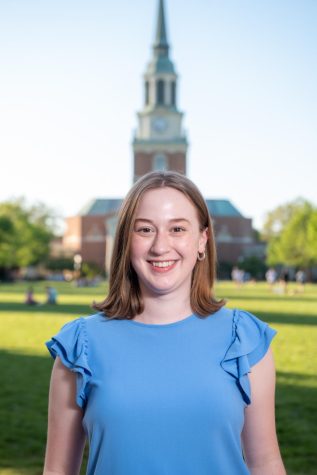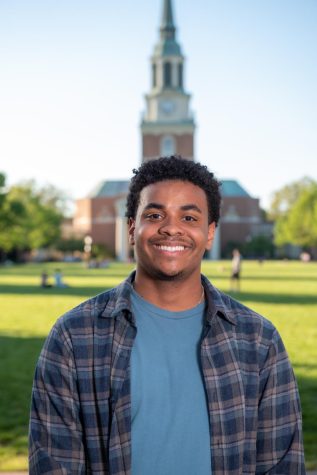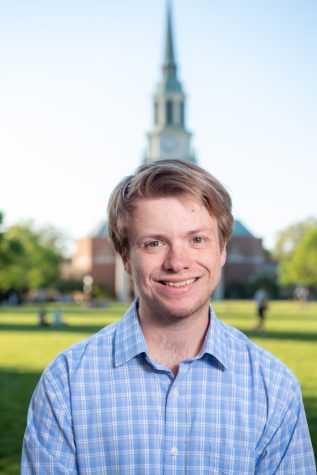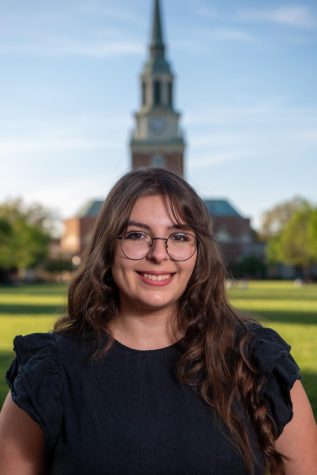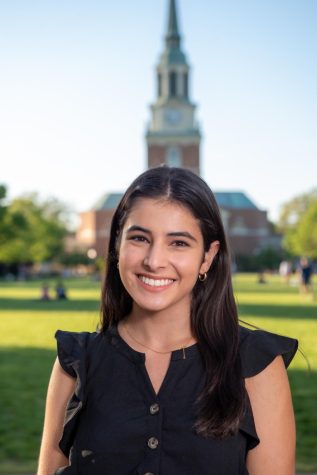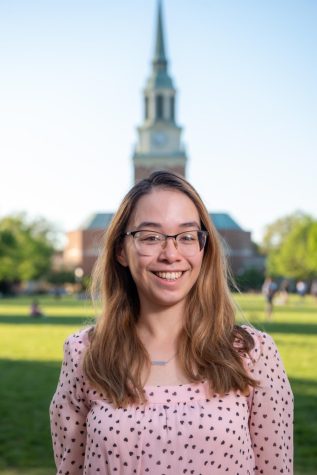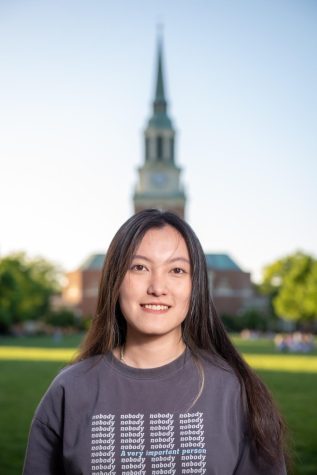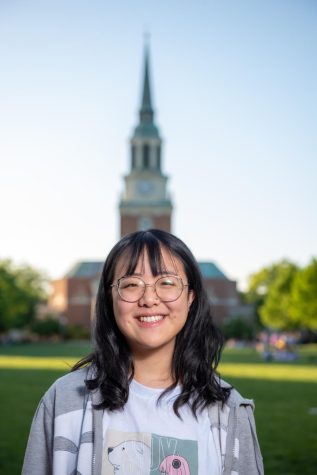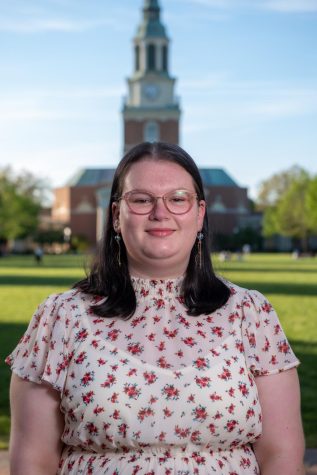Music Performance: Alice Hauser
A classically trained pianist, music has been instrumental in Alice Hauser’s life since she was only five years old. While she has also devoted time to playing the trombone and singing, the piano is the instrument to which Hauser has consistently committed herself. But for Hauser, music is much more than pleasing sounds and notes.
“Music, to me, is a celebration of humanity. I think there is something very special about humanity, and my music reminds me of that,” Hauser said. “When I perform for other people, I like to think that there is something common connecting me to other people in the audience, which I think is really rare in our society right now.”
With a double major in musical performance and philosophy and a minor in history, this fascination with humanity is something that shows up in all facets of her life, which is why she ultimately wants to go into law.
“Lots of people undergo experiences where their humanity is compromised or undermined, and I feel deeply called to be a person who helps restore that personhood to them,” she said.
The story looked quite different, though, when Hauser was a freshman.
“I came to Wake Forest thinking I was going to be pre-med,” she said, “but I was taking this class called race, gender and the courts… and I noticed that I couldn’t stop talking about the class.”
In the class, Hauser read Supreme Court cases dealing with race and gender, and she remembered being “shocked at the laws that existed in our country and some of the injustices that were a part of the system.”
“I remember thinking that that was unacceptable to me,” she said.
From there, Hauser stumbled into a philosophy class, which she took in order to fulfill a divisional, and she found that she loved it.
“I felt like my brain hurt everyday after class,” she said. It was a feeling that she really enjoyed, and so she endeavored to take more philosophy classes. One of her most important experiences was a seminar on Immanuel Kant — taught by Dr. Justin Jennings — which helped her form and strengthen her own views on morality.
Hauser didn’t even see herself continuing to play the piano, but she resolved that she might as well give it a try because of how much time she had already put into it.
“When I got in on my first day, I was so nervous to play for my professor, Dr. [Peter] Kairoff,” Hauser recollected. “I stumbled through this piece, making all kinds of mistakes, and I remember looking at him, shaking, because I was so scared that he was going to ridicule me.”
Instead, he simply smiled and said, “There is a lot to admire about what you did.”
Hauser’s love for music was rejuvenated. With all of these interests, she found it crucial to take time to just have fun. As the captain of the women’s ultimate frisbee team, she stressed the importance of being outside, cooking in her apartment and hanging out with friends.
With three different fields that are deeply important to her, Hauser sees a connection in how they are all “centered on humanity.” In this way, they all support each other and thrust her into the next stage of life.
After Wake Forest, Hauser will use her Rhodes Scholarship to pursue a master’s degree in musicology and another in refugee and forced migration during her two years at Oxford. After that, she will return to America and go to law school at Yale or the University of Chicago, where she hopes to hone her skills and prepare for a life of fighting for justice.
While it is subject to change, Hauser thinks that she can make a difference in “the intersection between undocumented immigration and sexual violence.”
As she looks forward to the future, Hauser is most excited about seeing just what she can do and accomplish.
Music Performance: Alice Hauser
A classically trained pianist, music has been instrumental in Alice Hauser’s life since she was only five years old. While she has also devoted time to playing the trombone and singing, the piano is the instrument to which Hauser has consistently committed herself. But for Hauser, music is much more than pleasing sounds and notes.
“Music, to me, is a celebration of humanity. I think there is something very special about humanity, and my music reminds me of that,” Hauser said. “When I perform for other people, I like to think that there is something common connecting me to other people in the audience, which I think is really rare in our society right now.”
With a double major in musical performance and philosophy and a minor in history, this fascination with humanity is something that shows up in all facets of her life, which is why she ultimately wants to go into law.
“Lots of people undergo experiences where their humanity is compromised or undermined, and I feel deeply called to be a person who helps restore that personhood to them,” she said.
The story looked quite different, though, when Hauser was a freshman.
“I came to Wake Forest thinking I was going to be pre-med,” she said, “but I was taking this class called race, gender and the courts… and I noticed that I couldn’t stop talking about the class.”
In the class, Hauser read Supreme Court cases dealing with race and gender, and she remembered being “shocked at the laws that existed in our country and some of the injustices that were a part of the system.”
“I remember thinking that that was unacceptable to me,” she said.
From there, Hauser stumbled into a philosophy class, which she took in order to fulfill a divisional, and she found that she loved it.
“I felt like my brain hurt everyday after class,” she said. It was a feeling that she really enjoyed, and so she endeavored to take more philosophy classes. One of her most important experiences was a seminar on Immanuel Kant — taught by Dr. Justin Jennings — which helped her form and strengthen her own views on morality.
Hauser didn’t even see herself continuing to play the piano, but she resolved that she might as well give it a try because of how much time she had already put into it.
“When I got in on my first day, I was so nervous to play for my professor, Dr. [Peter] Kairoff,” Hauser recollected. “I stumbled through this piece, making all kinds of mistakes, and I remember looking at him, shaking, because I was so scared that he was going to ridicule me.”
Instead, he simply smiled and said, “There is a lot to admire about what you did.”
Hauser’s love for music was rejuvenated. With all of these interests, she found it crucial to take time to just have fun. As the captain of the women’s ultimate frisbee team, she stressed the importance of being outside, cooking in her apartment and hanging out with friends.
With three different fields that are deeply important to her, Hauser sees a connection in how they are all “centered on humanity.” In this way, they all support each other and thrust her into the next stage of life.
After Wake Forest, Hauser will use her Rhodes Scholarship to pursue a master’s degree in musicology and another in refugee and forced migration during her two years at Oxford. After that, she will return to America and go to law school at Yale or the University of Chicago, where she hopes to hone her skills and prepare for a life of fighting for justice.
While it is subject to change, Hauser thinks that she can make a difference in “the intersection between undocumented immigration and sexual violence.”
As she looks forward to the future, Hauser is most excited about seeing just what she can do and accomplish.
